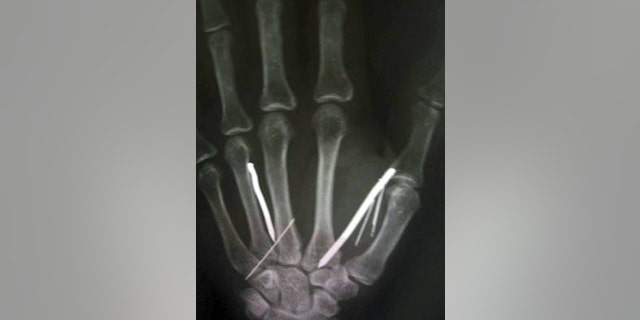In a grievous incident that has stirred global outrage, a Saudi couple has been accused of subjecting their maid to unimaginable torment, resorting to the appalling act of embedding hot nails into her body. The story, laden with darkness and a chilling lack of empathy, sheds light on the disturbing realities faced by domestic workers in various parts of the world, particularly in regions grappling with systemic issues of abuse and exploitation.
The couple, reportedly motivated by a perilous combination of sadism and a warped sense of control, is said to have inflicted pain in a manner that challenges the very essence of humanity. The maid, whose identity remains undisclosed, experienced unimaginable suffering as the couple drove heated nails through her skin—a grotesque manifestation of their power dynamics. As she finds herself on the precipice of survival, a surgical procedure is planned to extract the nails, a grim operation that serves as a physical and psychological reclamation of autonomy.
This heinous act not only highlights the urgent need for reforms in domestic employment laws but also amplifies the voices of countless others who endure similar fates in silence. Domestic workers, often marginalized and stripped of their rights, are frequently subject to physical abuse and psychological manipulation. The societal indifference toward such cases fosters an environment where perpetrators remain emboldened, believing they can act with impunity. As news of this incident reverberates through international platforms, it raises essential questions about the structures that allow such abhorrent behavior to persist unchecked.
Moreover, the narrative of abuse is not isolated to this particular incident, but rather part of a broader tapestry woven with threads of exploitation across various cultures and economies. In many societies, the treatment of domestic workers reflects deep-rooted societal attitudes towards class and gender. To address the injustices faced by these individuals, a dramatic shift in perspective is imperative—a re-evaluation of how domestic labor is viewed and valued. Societies must confront the uncomfortable truths about inequality and the mechanisms that maintain this status quo.
In conclusion, the distressing plight of this maid serves as a catalyst for discussion surrounding the treatment of domestic workers worldwide. It underscores the importance of vigilance, advocacy, and reform to protect the rights and dignity of those who are often unseen. As the world reacts, the hope is that this tragic episode not only prompts immediate justice for the victim but also ignites a sustained conversation about human rights, empathy, and societal change. A moment once filled with horror may yet pave the way for enlightenment and reform, ensuring that no such cruelty goes unchallenged.
